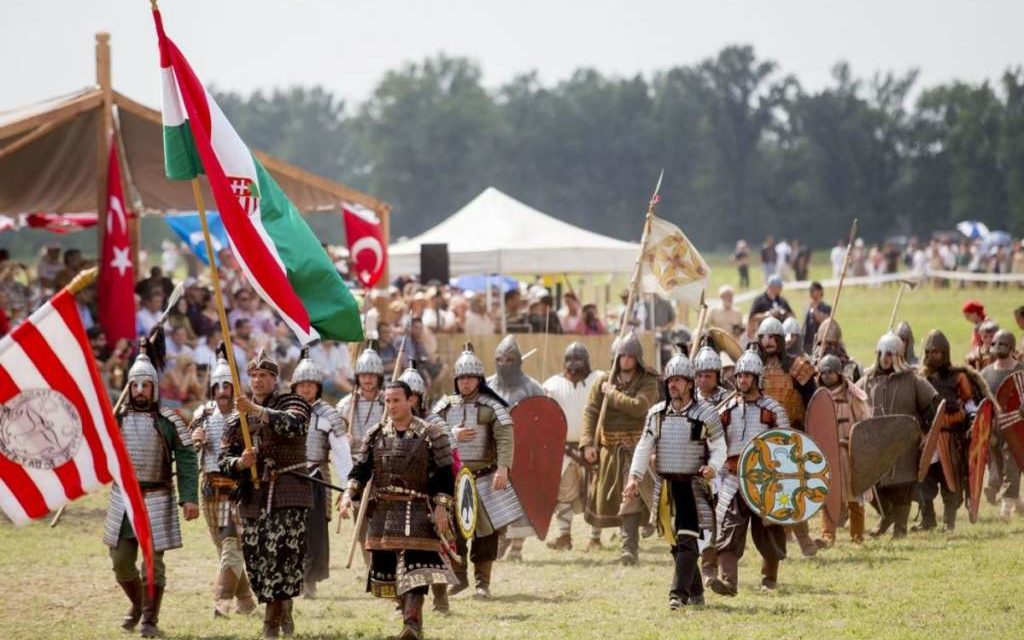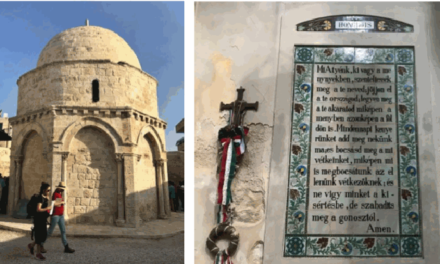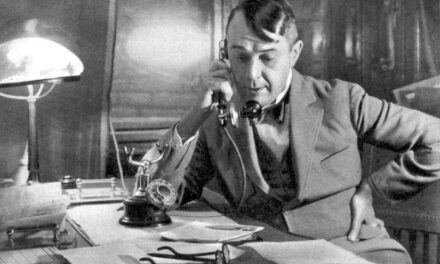"A nation that does not know its past does not understand its present, and cannot create its future!"
It should be known that there are many quotes praising Hungarians on the Internet that were never actually spoken. On the one hand, these were made with the intention of discrediting, in order to point out that Hungarians believe all foolish things. On the other hand, well-intentioned people find such quotes, which the compatriot who discovered and forwarded the link thinks is helping the cause of Hungarian history, language, and culture. (This is, for example, George Bernard Shaw's laudatory statement circulating in the Hungarian language. According to some opinions, this has never been said. At the same time, it is also a fact that the elderly writer fell in love with the Hungarian actress Valéria Hidvéghy. On the death bed of the 94-year-old writer, only the young and very beautiful actress He left Pygmalion and the copyright to My Fair Lady to his secret love.)
The following famous people's sentences about Hungarians are hopefully not the result of deception.
Byzantine emperor Leo the Wise (866-911): "Hungarians tolerate work, fatigue, scorching heat, frost, cold, all deprivation. Lovers of freedom and lovers of pomp.”
Ekkehard (895-1060), a monk of the monastery in Sankt Gallen: " I don't remember ever seeing more cheerful people in our monastery than the Hungarians." Food and drink were given in the greatest abundance..."
Abbot Regino (908): "Trained in toils and battles, their physical strength is immeasurable... they kill only a few with the sword, but many thousands with arrows shot from their horns so skilfully that there is hardly any defense against their shots..."
King Berengar of Italy (921): “Their wealth is lavish and conspicuous. They can field a huge army! He starts blowing the horn, his whole army turns around. They ride their shift horses for days. When they start, heaven and earth move under them. Their combativeness and courage are unique. They are not afraid of death! They die smiling! They are invincible.”
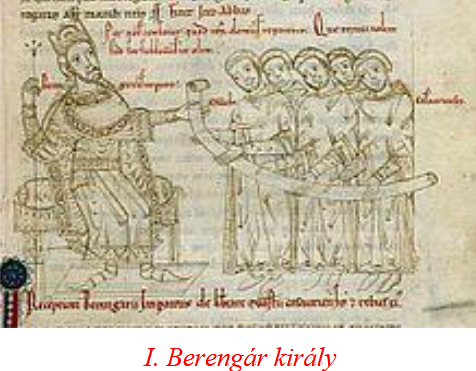
Persian writer Ibn Ruszta (930): "The Hungarians are of the Turkic race and their leader marches into battle with twenty thousand horsemen... The country of the Hungarians abounds in trees and waters. They have a lot of arable land... These Hungarians are attractive and good-looking people, large, wealthy and conspicuously rich, which they owe to their trade. Their clothes are made of silk brocade. Their weapons are beaten out of silver and gold and inlaid with pearls.”
Bishop Kozma of Prague, who stayed in Hungary for several years (1110): "The Hungarian king and his people are powerful, rich in treasures, victorious in war, and able to oppose any king of the land."
German bishop and chronicler Otto of Freising (1147): "Everyone's behavior is determined by the king alone. They all obey the prince in such a way that it would be considered a sin not only to excite them with open contradictions, but also to insult them with secret whispers... in this vast country no one dares to mint money or collect customs except for the king... And when the king wants to lead the army, then all united in one body without contradiction.”
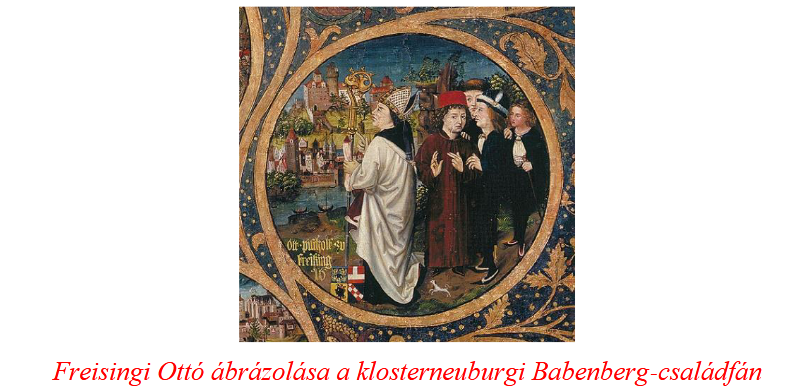
Pierre Vidal, French troubadour (end of the 12th century): "To cheer up my life, I went to Hungary, to the good King Imre. There I found a good abode, honest, good-natured friends and servants."
Bernardus, abbot of Monte Cassino (1269): "The Hungarian king is powerful when he sets his armies in motion, nobody dares to move in the north and east."
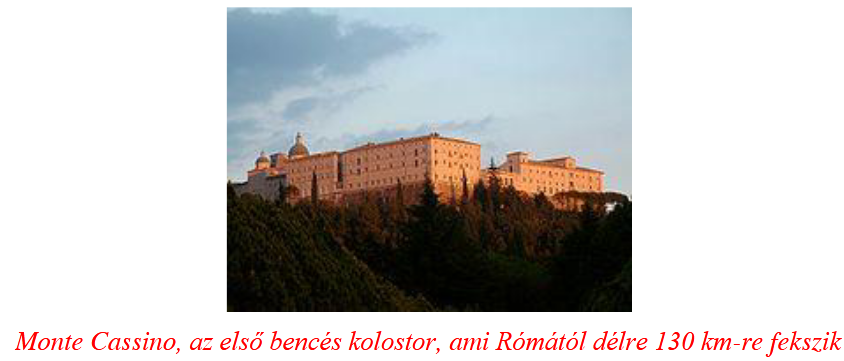
Dante Alighieri, Italian poet (1265-1321): "Oh, happy Hungary, don't let yourself be tormented any longer!" "Hungary is the Paradise of the Saints."
1. Sultan Murad (1404-1451): "He who conquers Hungary is the master of the whole world."
Pope Nicholas 1 in 1449 and III. In 1455, Pope Callixtus honored Hungary with the title "Protective shield of Christianity"
Pope Pius 1 (1456): After the triumph of János Hunyadi in Nándorfehérvár, he said: "Hungary is the shield of Christianity and the defender of Western civilization."
Italian humanist Marzio Galeotto (1427-1497): "The peoples of Europe are all envious of the Hungarians for the area of the Carpathian Basin, the wealth here, and that is why they are surrounded by hatred. In Hungary, the land is the richest, the fish and blessings are abundant, there is a large amount of bread grain, and the wine is excellent."
Robert Johnson (1616): "This one kingdom did more to diminish the Ottoman ambitions, and to check the Ottoman fortunes, than all the other Christian states put together."
English writer and poet John Milton (1608-1647): "I am proud that there is a cultural connection between Hungary and England."
General Jenő Savoyai (1663-1736): "If they win, it is our victory - Europe's - if they lose, it is their misfortune."
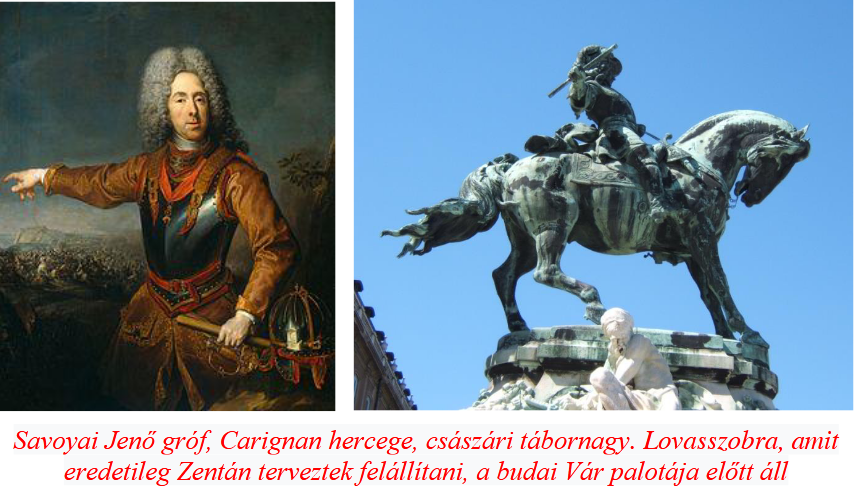
French philosopher Montesquieu (1689-1755): "The Hungarian is famous for his love of freedom, his noble and generous character, and his heroic courage. His hospitality has a legendary reputation.”
Jules Michelet (1798-1874), French historian: "The Hungarian nation is an aristocracy of heroism, spiritual greatness and dignity. When will we pay off our debt to this blessed nation that saved the West? Perhaps French historiography could once again pay tribute to the Hungarians, the heroes of the nations. This nation lifts and ennobles us with its heroic example. Hungarian heroism is an expression of high morality."
1. English traveler Herring (1838): "Hungary was a barrier to Turkish expansion, a cradle of constitutional freedom and religious tolerance."
Grim Jakob (1785-1863) is the creator of German scientific grammar: "The logical and perfect structure of the Hungarian language surpasses all other languages."
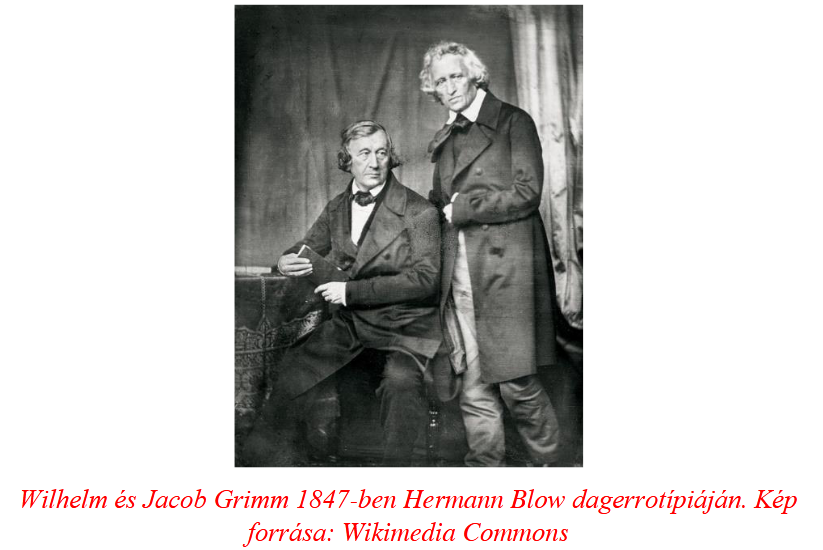
Bowring John (1792-1872): "The Hungarian language stands far above itself. It developed in a very specific way, and the formation of its structure dates back to a time when most European languages did not even exist. It is a language that has developed in itself, consistently and firmly, in which there is logic, even mathesis, power, with all the flexibility and malleability of sounds. This language is the oldest and brightest memory of national independence and intellectual independence... The originality of the Hungarian language is a wonderful phenomenon!"
French poet and writer Victor Hugo (1802-1885): "Hungary represents the nation of heroes, Germany represents virtue, France represents freedom, and Italy represents glory among nations. Hungary is the embodiment of heroism. ...Hungary is not dead and cannot die. This excellent nation will break out of its grave where it was placed by arbitrariness.”
Otto von Bismarck, German chancellor (1815-1898): "The Hungarians are a special people, but I like them very much."
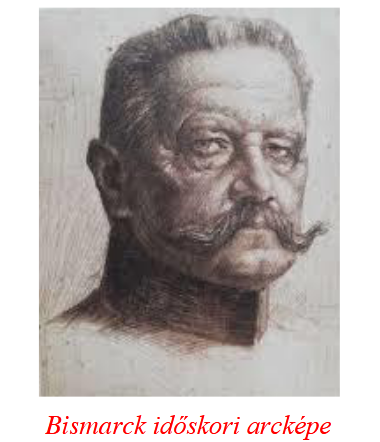
Taillandier (1817-1879), French writer and critic: "The Hungarian nation cannot perish, and even if it were to be buried, sooner or later it will rise again."
Erbersberg (1840): "The structure of the Hungarian language is as if it had been created by a group of linguists, so that it has all regularity, conciseness, harmony and clarity, and in addition, all commonplace, pronunciation difficulties and irregularities have been studiously avoided."
French anthropologist Paul Topinard (1881): "Nowadays, the facial features of the more educated Hungarian families are among the most beautiful in all of Europe. They are slightly taller than average, well built, with regular facial features, brownish or whitish skin, brown hair and eyes... from an anthropological point of view, the data so far testify against a relationship with the Finns..."
In 1910, before his presidency, Roosevelt (1858-1919) said in Hungary: "The whole civilized world owes Hungary its past. When America was still in the womb of Europe, Hungary prevented the expansion of the barbarians, Hungary protected the security of the civilized world. There is no brighter history than that of the Hungarian nation."
Elisée Reclus (1837-1916): "Hungary's extraordinary advantage is that it is a geographical unit in a strict sense. From a geographical point of view, the Kingdom of Hungary is one of the most connected areas in Europe. Whatever the fate of the Central European states, it is certain that Hungarians will always play the most significant role in the giant arena surrounded by the Carpathians."
Vautier, French politician (beginning of the 20th century): "Hungary's past is bright, but the future holds an even more glorious destiny for it. This nation worthy of a better destiny was walled off from Europe by Austria, so to speak, so that on the one hand it could exploit it more freely, and on the other hand, so that the foreign countries could not hear the complaints of the Hungarians yearning for independence."
Garvin, English journalist (1925): "Of all defeated peoples, the talented ... Hungarian people had the worst fate."
D'Annunzio, Italian poet (1926): "As long as justice is not served to Hungary, the questions of the Danube basin cannot be settled definitively. Hungary is truly crippled by the war."
Lord Sydenham, Member of the House of Lords (1927): "It is with the keenest sympathy that I look upon this proud people of glorious past, now locked in the ring of the well-armed peoples of the kisantan."
Lord Rothermere (1927): "The injustice of the new European frontiers is a constant danger to the peace of Europe, and the hands which created the present political situation have sown the seeds of future war."
Italian historian Ferrero (1871-1942): "Hungary is a thousand-year-old state, a historical and geographical unity, welded together by centuries and held together by internal attractive forces, which neither gun nor pen can tear apart overnight."
French historian René Grousset (1885-1952): "Hungary was Europe's outpost towards Asia. Since the adoption of Christianity, the role of Árpád's country was to stop the Mongol conquerors at the Carpathians or the Danube. And his heroic resistance forced the Turks to stop."
Francesco Forgione /Father Pio/ (1887-1968) Italian Capuchin monk: "Hungary is a cage from which another beautiful bird will one day fly out. Much suffering still awaits them, but they will have a glory unparalleled in all of Europe. I envy the Hungarians, because they will bring great happiness to humanity. Few nations have such a powerful guardian angel as the Hungarians, and it would be right for them to ask more strongly for his effective protection for their country!"
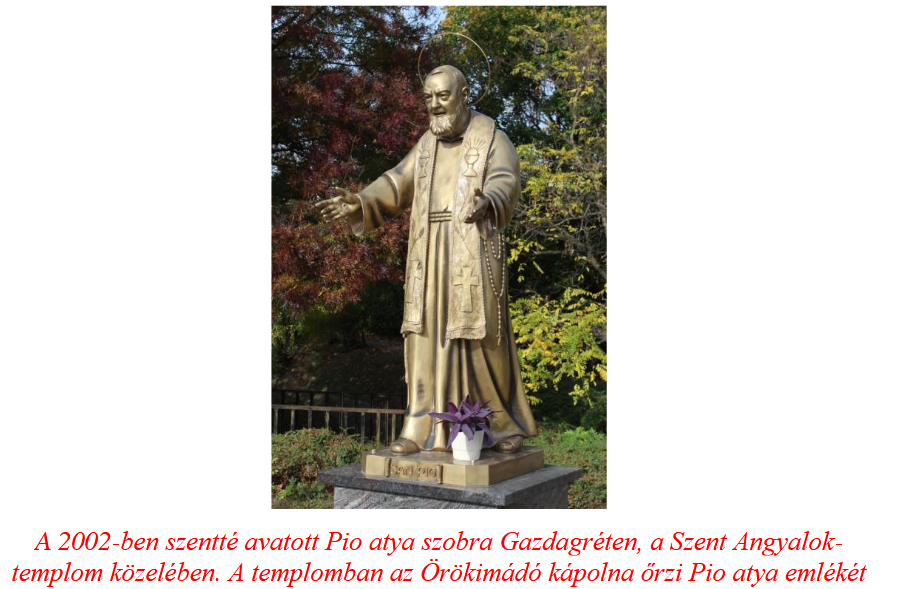
French Nobel Prize-winning writer Albert Camus (1913-1960): "... Hungarian blood is of such great value to Europe and freedom that we must protect every drop of it. ...On today's anniversary of freedom, I wish from the bottom of my heart that the silent resistance of the Hungarian people will remain, grow stronger and, with the echo of our cries of attack from everywhere, reach the unanimous boycott of the international public opinion against the oppressors. ...Hungary, beaten down and handcuffed, has done more for freedom and justice than any nation in the world in the last twenty years. In order for this historical lesson to be understood by the Western society, which covers its eyes and covers its ears, a lot of Hungarian blood had to be shed - and this stream of blood is now congealed in the memory."
Science fiction writer Isaac Asimov (1920-1992): " There is a rumor in America that there are two intelligent species on earth: humans and Hungarians."
XIV. Dalai Lama (1980): "On Earth, Hungarians have the role of protecting an energy center."
German politician Helmut Kohl, chancellor between 1982 and 1998: "The biggest blow to international communism came from the Hungarians, and the first stone from the Berlin Wall was knocked out by Hungarian heroism."
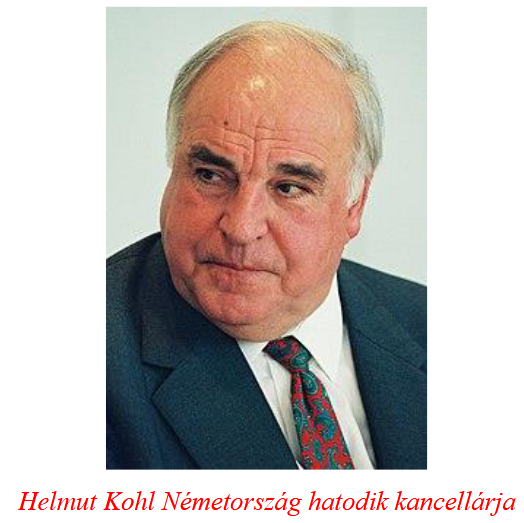
American anthropologist Krantz S. Grover (1931-2002): "The antiquity of the Hungarian language in Hungary can be just as surprising... I consider it a transitional Stone Age language that precedes the beginning of the Neolithic... Hungarian is practically the oldest of all European languages remaining in place..."
Marianacci, director of the Italian Cultural Institute (2006): "...the Hungarian language doesn't need anyone, it doesn't borrow, it doesn't do business, it doesn't give or take from anyone. While in other countries the people shape the language, here the language shapes the Hungarians. I think that the Hungarian language could be part of the world heritage because it is a pure language. No other language has actually managed to penetrate and impose foreign expressions on it…”
Tanpai Rinpoche, the leading lama of the White King Monastery in Nepal (2007): "You Hungarians cannot imagine how proud you can be of your nation, of your Hungarianness. We know for sure that the intellectual, spiritual and spiritual renewal of the world will start from your country."

Bill Jamieson – Scotland on Sunday (2012): /On the Basic Law of Hungary issued on April 25, 2011./
"...For a long time no Western nation has produced a document of such impeccable cultural and intellectual content and impressive moral value. In the moral desert of the 21st century, it can be shocking to come face to face with such a gem of traditional values, patriotic attitude and respect for true freedom. It's no wonder that Brussels and Washington want to withdraw it by force: read a little Hungarian history before embarking on such a futile attempt."
The 1 . and 2 . part can be read here.
Written down by Ferenc Bánhegyi

